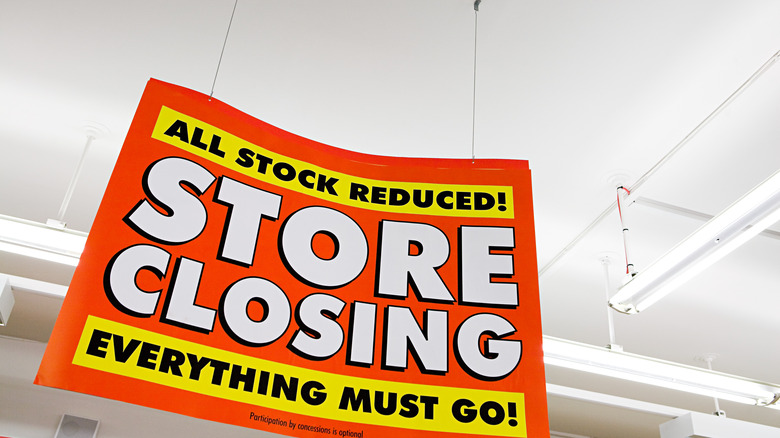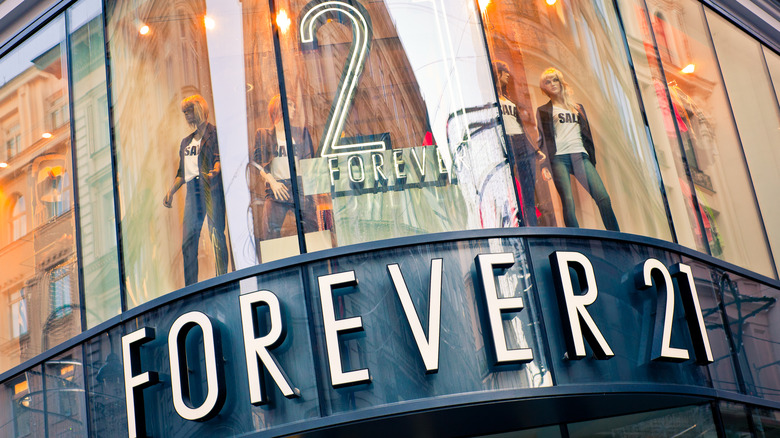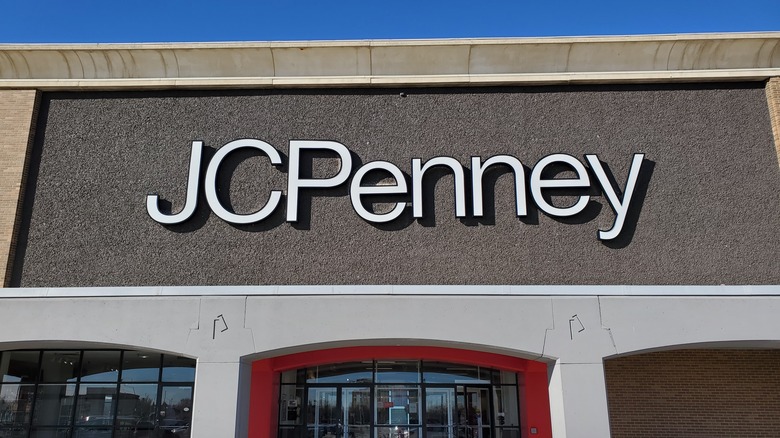This Popular Fashion Retailer Is Closing Even More Stores And The Reason Couldn't Be Clearer
From Victoria's Secret store closures to discount furniture retailer Kirkland's bankruptcy – there appears to be no shortage of retailers closing their doors on consumers in 2025. In fact, according to January 2025 research from Coresight, as reported by BusinessWire, a whopping 15,000 retail closures are expected to occur in 2025 alone. This marks a 334% increase in store closures when compared to 2024. Among the many beloved retailers that have filed for bankruptcy is JCPenney, which is set to close another eight stores in 2025. This is on top of the 200 closures the brand has implemented since first filing for bankruptcy in May 2020.
And things are not looking up for retailers. Coresight Research CEO Deborah Weinswig explained that, "Inflation and a growing preference among consumers to shop online to find the cheapest deals took a toll on brick-and-mortar retailers in 2024." In fact, she went on to say, "[In 2024] we saw the highest number of closures since the pandemic. Retailers that were unable to adapt supply chains and implement technology to cut costs were significantly impacted, and we continue to see a trend of consumers opting for the path of least resistance."
While things might look especially bleak for retailers like JCPenney, the company's January 2025 merger with another now-bankrupt brand, Forever 21, could serve to complicate the company's financials even further. While the merger could have ultimately been a good thing for the struggling retailer, complications have instead made JCPenney's future as uncertain as ever.
Catalyst Brands
Before filing for bankruptcy in March, Forever 21's parent company –- Sparc Group -– agreed to a merger with JCPenney in order to create a new company entirely, known as Catalyst Brands. This merger brought brands like Aéropostale, Brooks Brothers, Eddie Bauer, Lucky Brand, and Nautica, under the same roof with JCPenney exclusive brands like Arizona and Liz Claiborne. Per a company press release in January 2025, Catalyst Brands claimed that, upon it's launch, it had more than $9 billion worth of revenue, 1,800 store locations, 60,000 employees, and $1 billion worth of liquidity.
While the merger transaction was all equity based, it's worth noting that Catalyst Brands' shareholders also include the Simon Property Group, Brookfield Corporation, Authentic Brands Group, and Shein. Notably, Brookfield Corporation and Authentic Brands are the companies responsible for buying Forever 21 out of bankruptcy in 2020. Their apparent failure to turn that company around does not necessarily bode well, long-term, for JCPenney as it continues to navigate financially difficult waters post-bankruptcy.
Also, while the January merger was poised to help all involved brands, the March bankruptcy of Forever 21 served as a further blow to Catalyst Brands' larger portfolio. While it's difficult to say just how damaging the loss of the Forever 21 brand will be to the overall company, Catalyst Brands did confirm that it laid off roughly 9% of its corporate positions in early April, per Retail Dive. This on top of 5% of its corporate staff being laid off earlier in the year.
The future of JCPenney
While there are still a lot of unknowns when it comes to the future of not just JCPenney, but the larger brick-and-mortar retail industry as a whole, consumers in the present will ultimately be affected by the company's decision to close additional stores. Most notably, consumers in San Bruno, California; Denver, Colorado; Pocatello, Idaho; Topeka, Kansas; Annapolis, Maryland; Newington, New Hampshire; Asheville, North Carolina; and Charleston, West Virginia — where JCPenney locations are set to close by mid-2025.
While JCPenney did not provide specific reasons as to why these eight specific stores are set to close, a spokesperson did tell USA Today that the closures were not related to the Catalyst Brands merger, and instead would occur due to "expiring lease agreements, market changes or other factors." With that, according to Coresight Research, most retailers in 2025 are closing stores for one of three reasons: all-stores-closing liquidations, financially distressed retailers closing locations due to bankruptcy restructuring, or retailers adapting store footprints to better fit changing consumer retail trends. With any luck, JCPenney's decision to close these eight additional store locations is a function of the third option on that list — much like BestBuy's recent closures have been — and not a sign of ongoing financial strain.


